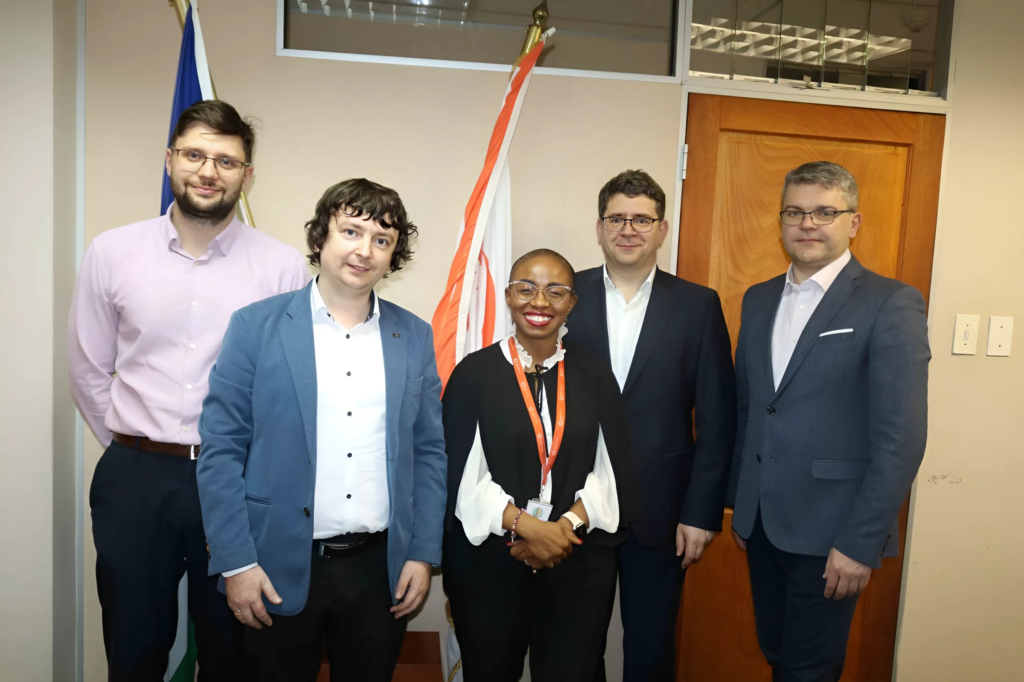
Revenue Services Lesotho has embarked on a journey to develop and implement a VAT compliance e-Invoicing solution which will simplify and accelerate VAT returns and refunds in Lesotho and thus help achieve the country’s fiscal goals.
In March 2024, Revenue Services Lesotho (RSL) embarked on a project to develop and implement an e-Invoicing and e-Filing Solution aimed at improving VAT collection in Lesotho and boosting VAT-related data collection and assessment by RSL. The solution will also provide modern tools for VAT return filings, automating and thus speeding up the process of submission of VAT returns, assessing them, and processing VAT refunds. The project, which is in line with the RSL Digitalization strategic pillar, is expected to be completed by July, 2025. It is being funded by the African Development Bank and led by experts from Norway-based NRD Companies who have already begun gathering business requirements from internal and external stakeholders as part of the project initiation.
NRD Companies, a global IT and consulting group of companies, specializing in governance and economic digital infrastructure development, has previously implemented similar solutions in Zimbabwe, Zanzibar, and Lithuania, using VFDMS© (Virtual Fiscal Device Management System), a proprietary next generation fiscal sales data collection solution that allows tax authorities to simplify the collection of taxes.
In line with the RSL Digitalization strategic pillar, we have begun a journey with our partners towards implementing a Value Added Tax (VAT) e-Invoicing and e-Payment Systems in Lesotho. The aspiration is for the Revenue Services Lesotho (RSL) to function as a passionate, efficient and customer-centric tax administration, aiming to positively impact the lives of Basotho. Our goal is to engage all stakeholders, fostering a collective sense of pride and purpose to elevate the socio-economic status of our beloved nation, Lesotho. It is paramount that we recognize that vigilantly safeguarding our tax regime is crucial for achieving our national aspirations, whether on a local or international scale.
Mrs. Mathabo Mokoko, RSL Commissioner General
Value Added Tax (VAT), a form of an indirect tax levied on goods and services supplied in and outside Lesotho was introduced in July 2003 to replace an old system of indirect taxation called General Sales Tax (GST). According to a recent report by the African Department of the International Monetary Fund (IMF), VAT is Lesotho’s revenue workhorse, providing 38 percent of total domestic tax revenues in the past decade, or 7.7 percent of GDP.
Current challenges and expected changes
Notwithstanding the fact that VAT represents a substantial percent of Lesotho’s GDP, reduced VAT rates in certain segments of the economy and a substantial informal economy with significant cash-based transactions, lead to a VAT environment that still has untapped potential. Furthermore, much of the VAT reporting is still paper-based, audit and control by RSL is still manual, and the country is in need of amendments and consolidation of its legal framework, and the strengthening of its institutional framework.
Several positive changes are expected with the completion of the project. Enhanced VAT collection will help the Government of Lesotho to achieve its fiscal goals and thus meet required public spending. The VAT e-filing component will provide businesses with simpler and expedited VAT return filings and faster VAT refunds. The introduction of e-Invoicing will facilitate the use of digital receipts and invoices, thus allowing vendors to save on costs, and the buyers to have purchase evidence documents stored digitally.
In addition to addressing some of the challenges facing Lesotho, NRD Companies will implement a comprehensive set of advisory services. As a prerequisite to the implementation of VFDMS©, the advisory component includes reviewing existing legal frameworks and legal acts, submitting recommendations for changes to the VAT Act and regulations that may be required for the implementation and enforcement of the system, business-process reengineering support, as well as guidance with the implementation of internal and external change management. The revision of current business processes and identification and definition of new processes will allow RSL to ensure fast adoption of the system and a smooth learning curve for its employees.
Conclusion and projected achievements
“We are excited and honored to have been chosen by the Government of the Kingdom of Lesotho and Revenue Services Lesotho to address their digitalization goals and pave the way to a modernized tax landscape as part of the Lesotho Tax Modernization Project. Our highly experienced team will be involved in customizing VFDMS© to RSL’s specific needs, building required system integrations, and ultimately, developing e-filing capabilities for VAT returns and refunds. NRD Companies’ global experience, and specifically in Africa, has proven that the implementation of digital innovations has brought with it increased government revenue. It has also led to the enhancement of government services while making compliance with tax laws less time-consuming and more cost-efficient” says Mindaugas Glodas, CEO of NRD Companies.
About Revenue Services Lesotho
The Revenue Services Lesotho (RSL) is an operationally autonomous body that was established by the Revenue Services Lesotho Act no. 14 of 2001 to be the:
“Main body responsible for the assessment and collection, on behalf of the Government, of specified revenue; for the administration and enforcement of laws relating to such revenue and for related matters”.
The Service, which became operational in January 2003, incorporates the functions of the old Income Tax, Customs and Excise and Sales Tax Departments. The RSL was established to enhance the efficiency and effectiveness of revenue collection and to provide an improved service to the public. The Service is required to maintain the highest standards of financial integrity and corporate governance. Despite operating outside the framework of the Civil Service, the Authority is fully accountable to the Parliament.














